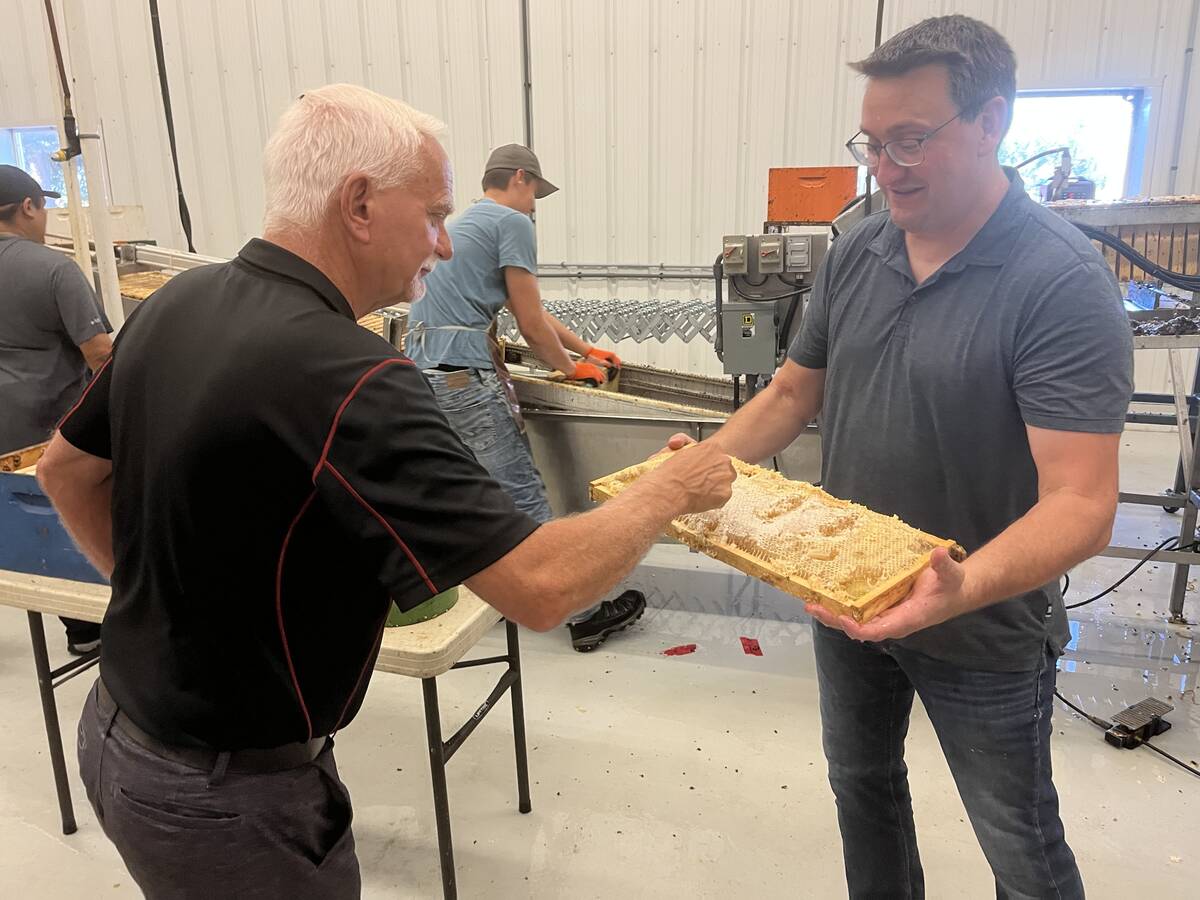A few weeks ago fellow columnist Peter Griffiths wrote about an elderly
woman who had co-signed a loan for a relative. The relative defaulted
on the loan. The questioner alleged the sheriff had come to seize the
furniture. Griffiths dealt with the question of whether this was elder
abuse with a relative taking advantage of an elderly grandmother. There
are also legal issues to consider.
Financial institutions commonly seek loan guarantees. In most cases,
when a financial institution advances a loan, it will take security for
Read Also

Alberta honey business ‘thrives’ despite bumpy beginnings
Thrive Honey showcases its honey production in market where Alberta produces 40 per cent of all honey produced in the country
the loan. Commonly it uses a mortgage against the land, a security
interest in the machinery or vehicle that you are buying, a promissory
note, a deposit of company shares or a third party guarantee. Thus the
financial institution might ask you to co-sign a car loan for your son
or to co-sign a loan for your daughter’s farming operation. Another
scenario is if your farming company seeks a loan. You can be assured
the financial institution will ask you, and any other shareholders, to
co-sign the loan. Co-signing a loan is a guarantee and you are equally
responsible for the loan. The bank does not have to try to collect from
the debtor first before going after the guarantor.
Some provinces have passed laws requiring the guarantor to publicly
acknowledge before a notary public that they have voluntarily signed
and understand the guarantee in order for it to be enforceable. Even in
provinces that don’t have such laws, financial institutions often have
the guarantor examined by an independent third party to ensure their
obligations are understood.
What happens if the loan is in default? The guarantor can be sued and
will receive notice of the suit and an opportunity to defend. If the
suit is successful, the guarantor is legally obliged to pay. Failing
that, the institution can garnishee bank accounts or seize property.
However, both are time-consuming and costly procedures, so often the
institution will accept a repayment scheme.
There are limits on what can be seized. In most provinces, household
furniture and the home are exempt, although there are limits on the
value of the exemption. Under Saskatchewan’s Farm Security Act, $10,000
of furniture is exempt. Many provinces also exempt livestock, seed
grain and crops to a sufficient value to cover harvest costs and to
cover living and operation expenses. Machinery is also exempt unless it
is the item financed. The full list of exemptions is in provincial laws.
Don Purich is a former practising lawyer who is now involved in
publishing, teaching and writing about legal issues. His columns are
intended as general advice only. Individuals are encouraged to seek
other opinions and/or personal counsel when dealing with legal matters.
















